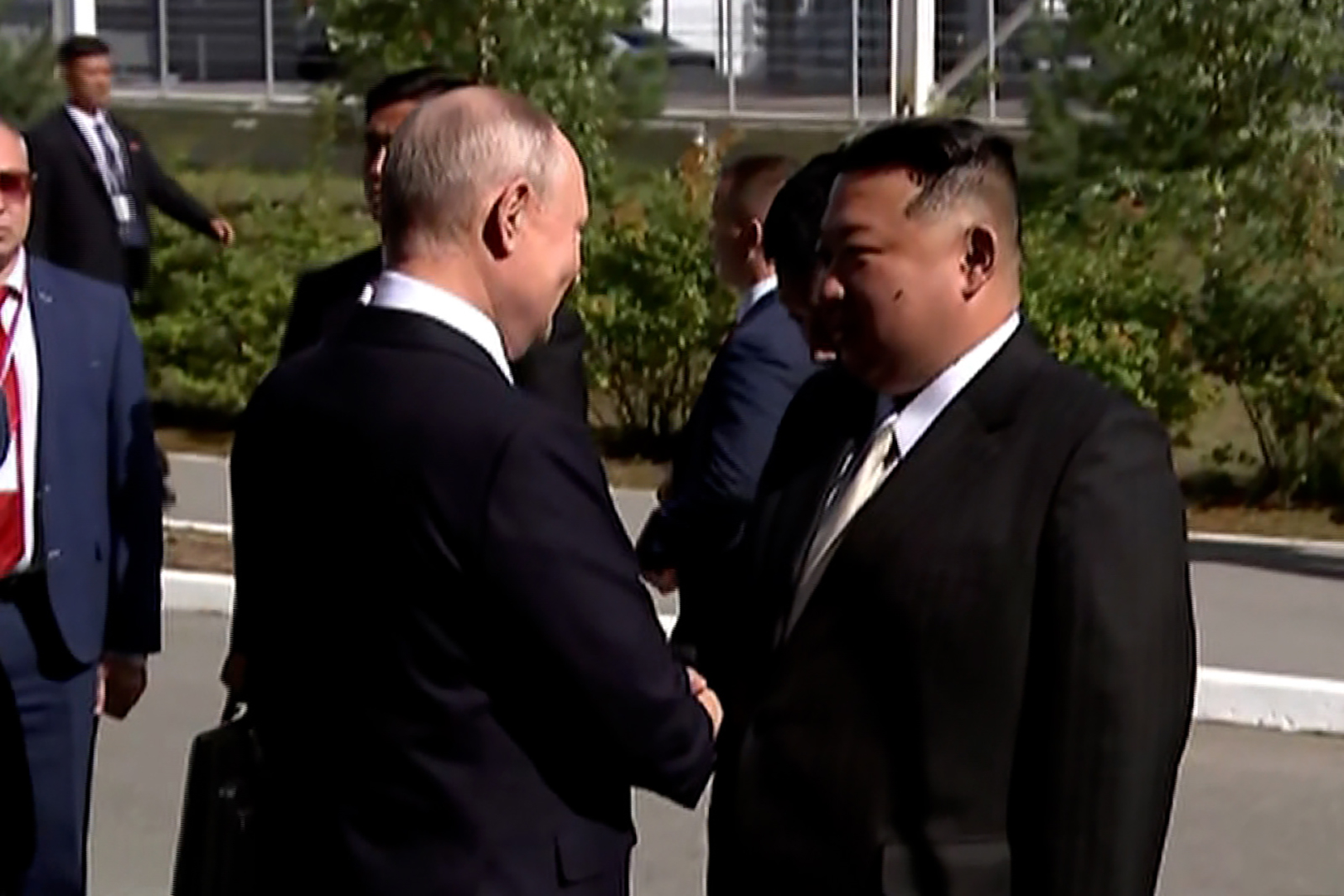
Russian President Vladimir Putin and North Korean leader Kim Jong Un are meeting at a remote space center in Russia’s Far East, where they’re expected to discuss a potential arms deal that could see Pyongyang supply weapons for Moscow’s use in the Ukraine war.
Both leaders arrived at the Vostochny Cosmodrome, Russia’s space rocket launch site, on Wednesday afternoon, shaking hands and speaking briefly before disappearing into the building.
The location itself is significant, said Leif-Eric Easley, a professor at Ewha University in Seoul.
“Meeting at Russia’s eastern spaceport is particularly provocative because it suggests that Putin may offer sanctions-violating satellite launch technology in exchange for North Korean munitions that Moscow would employ in its illegal war in Ukraine,” he told CNN.
What’s on the table: Moscow is in need of fresh supplies of ammunition and shells after more than 18 months of war in Ukraine has left its military battered, while North Korea, which has faced years of international sanctions over its nuclear weapons program, is short of everything from hard cash and food to missile technology.
Space technology is also a priority for North Korea, which has tried and failed to launch a spy satellite into orbit.
Kim has also stressed the role of military satellites as a means to protect national safety and territorial stability and has spoken of their strategic value when deploying military force preemptively, KCNA said in April.
Missile fired: Shortly before their meeting, North Korea fired two short-range ballistic missiles, according to South Korean authorities.
Experts told CNN it was highly unusual for North Korea to launch missiles with Kim out of the country — though Easley said Pyongyang could be trying to show “that the military maintains readiness with uninterrupted command and control.”
“Beginning in 2019, Kim started to generally grow more hands-off on testing and exercises, with many launches taking place without his apparent presence. This launch could have been carried out under standing orders,” said Ankit Panda, a senior fellow with the Nuclear Policy Program at the Carnegie Endowment for International Peace.